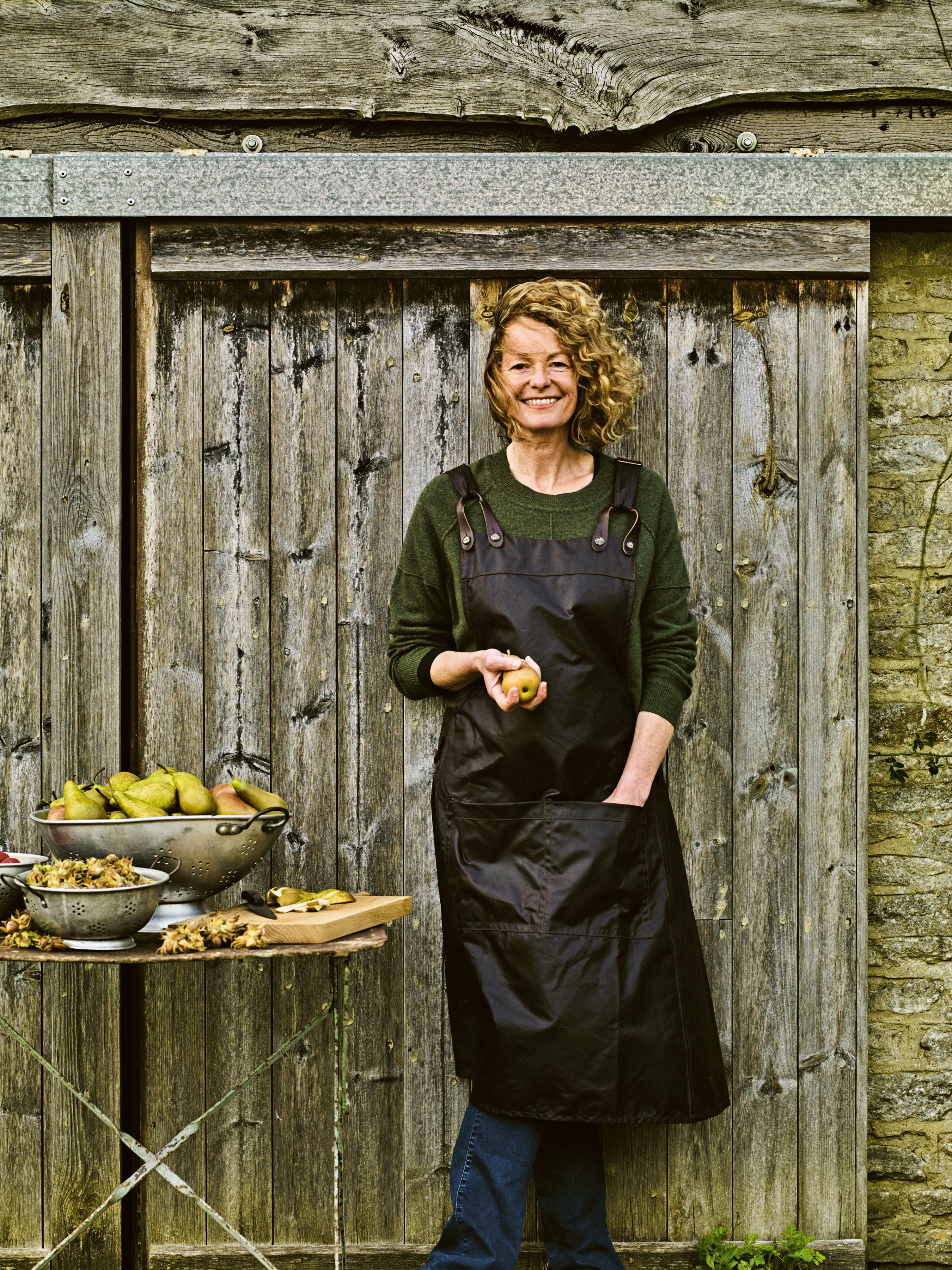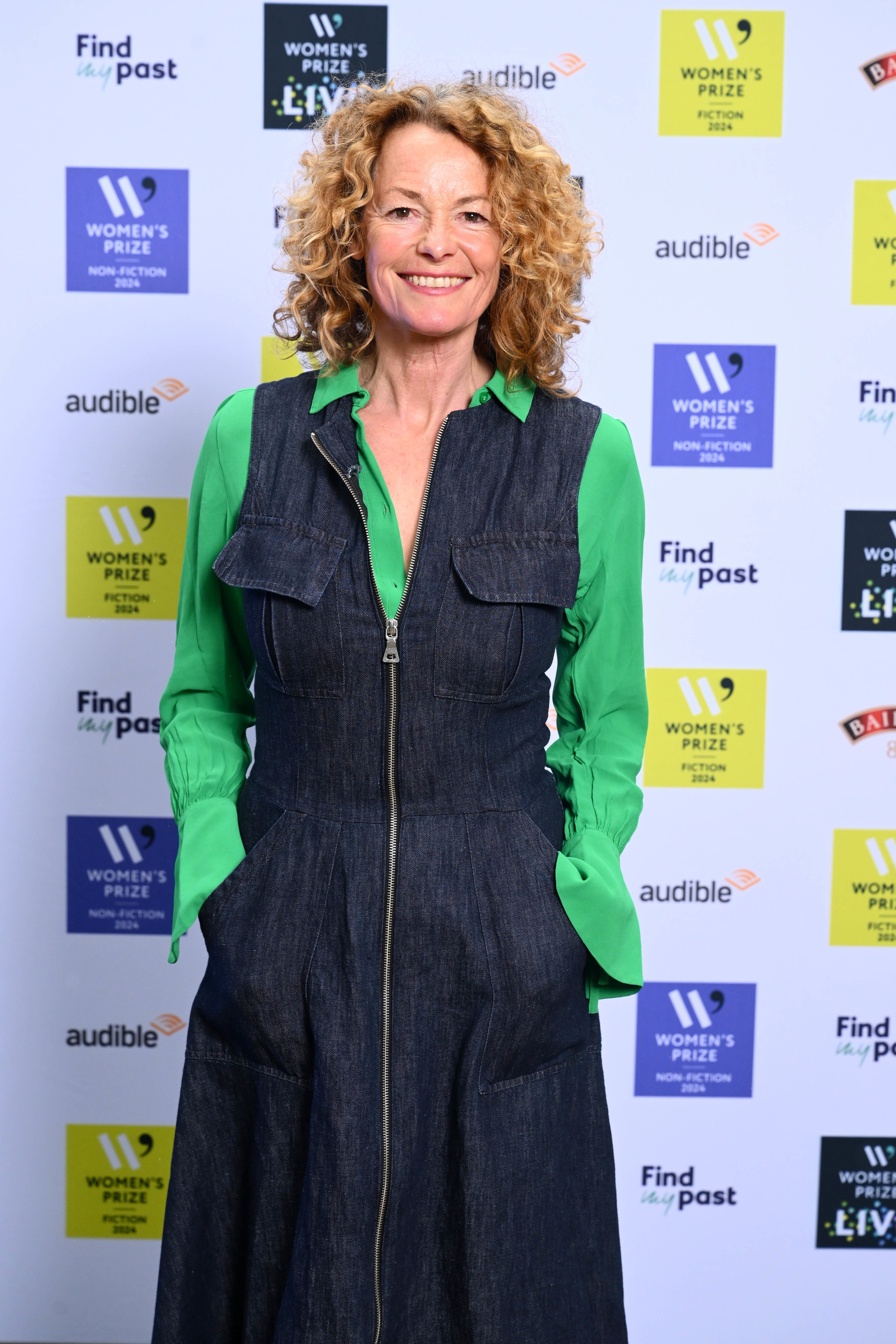
Despite self-describing as “the least crafty person in the world”, TV presenter Kate Humble is a bit of a “fan girl” for anyone with the skills to craft things by hand.
“With the rise of AI and the whole workplace changing so quickly – if you’re a writer or photographer or in TV, AI can do all this s**t for us,” says the 55-year-old. “So there’s actually been a resurgence in people wanting to learn how to make things, build a drywall or do blacksmithery, because people are fearing that AI will take away white collar jobs.”
Even in the age of careers made entirely on the internet, “There might be a real artisan uprising”, she says, “which would be amazing”.
Humble, who has presented BBC’s Back To The Land, Springwatch and Animal Park, says she doesn’t have “the creative gene” but “I’m really good at manual labour, and my kind of creative side actually is with cooking”.
The author of several books, her latest, cookbook Home Made, celebrates the beauty of artisan, handmade products – all of which are used in food and cooking in some way. Stories of individual artisan makers of aprons, knives, firepits and pans are weaved in around simple, countryside recipes inspired by those people and their products.
“We live in a society which is extremely wasteful,” says Humble, who lives in rural Monmouthshire, Wales, “because mass production makes things much more affordable. Of course I’ve bought mass-produced stuff, partly because I hadn’t always known there was another option.

“A lot of people will say, ‘Well, if you buy beautiful, handmade, artisan stuff, it’s very expensive’, which is also true. However, it will often outlast anything that is mass-produced. So I think you buy things like that with a different mindset, of them being almost heritage pieces that you will keep forever and you will look after.
“If people go and buy lots of cheap clothes, they think it’s great, they’re cheap, but the expense to the planet is enormous. We’ve been pushed down a very virulent consumer route – which is buy, buy, buy.”
The people featured in the book – from glassmaker Emsie Sharp and basket weaver Amanda Rayner, to Ben Ward who gave up his office job to become a professional vegetable grower – are “incredibly inspiring but also relatable”, Humble says. “These are all just ordinary people who’ve made an extraordinary choice to kind of really follow their hearts and do something that they love and that they’re skilled at. Because it’s not the normal way of [doing] things nowadays.”
And there’s courage in pursuing that. “I hope it taps into everyone’s little brave bits of their heart and the free bits of their spirit – even if they don’t go off and whittle spoons forever.
After all, modern life is moving us further and further into what’s fast and convenient.

“We’ve become so disconnected with the whole process of food, even more so I think in the last sort of five years, with the rise of delivery companies that just deliver cooked food to a house. People are getting their supermarket shop delivered to their doors. So they’re not doing it. They’re not even choosing the fruit or the vegetables that they’re going to eat.”
She notes that stories of where ingredients have come from are often used by restaurants to make it more appealing. “They’re really keen to tell you it’s locally sourced, or the name of the farmer – as a selling technique. But we don’t do it ourselves.”
Humble learned how to cook from her mum. “I grew up in a household and in an era where people did cook. We didn’t have takeaways or deliveries – certainly not in the Seventies and not in the countryside. All the food that we cooked, my mum cooked from scratch and we grew a certain amount of vegetables.”
She describes herself as “not a proper cook, just a home cook” and she hopes her recipes reflect that. “They are super easy,” she says, “and I’m unapologetic about that. To me, cooking should be a pleasure, not something that’s scary or a trial or an endurance test.
“There’s something about cooking for me that is just very therapeutic. I don’t try and make anything that is really out of my comfort zone, I just think that is not what it’s about. I love the process of taking raw ingredients and transforming them in the most simple and uncomplicated but mindful way.”

Humble grew up in rural Berkshire and, back in 2007, moved from London to Wales to live on a smallholding with husband Ludo, and went on to set up a working farm in the Wye Valley – where Channel 5’s Escape To The Farm is filmed.
“I’m just not cut out for city living. It actually came into sharp focus when I was working on Springwatch, but still living in London. I loved doing Springwatch so much because I loved that reconnection with the process of spring. I loved the response of nature to the lengthening days and the temperature getting warmer – and I love being witness to that.
“And I realised how much I missed it. It was an inherent part of my childhood that I’d never really considered before.”
Moving, she says, brought her back to herself. “I found city life really difficult.”
Her life-long travel bug is deep-rooted, though. At 18 she was working in an office to save up to go to Africa and someone asked her why. “I just thought, there’s a whole world out there and I haven’t seen any of it yet. I was really surprised by the question.
“I hope I never get to the stage where I’m happy just to be in one place and work in the same place all the time. I know it suits some people, absolutely fine, but I didn’t want it to be me.
“I suppose I’ve always tried to engineer things as much as you ever can to lead a life that makes me happy and hopefully makes other people happy.
“My mum still thinks I’ve never had a proper job – which is sort of true, but, yeah, it suits me, and it’s just being true to yourself, really.
She gets “homesick” when she travels now though. “We live in such an extraordinary world full of incredible places and people and animals. I still have this real desire and joy to see it. But I also have this added element of really loving coming back.”
‘Home Made: Recipes From The Countryside’ by Kate Humble (Gaia, £26).







